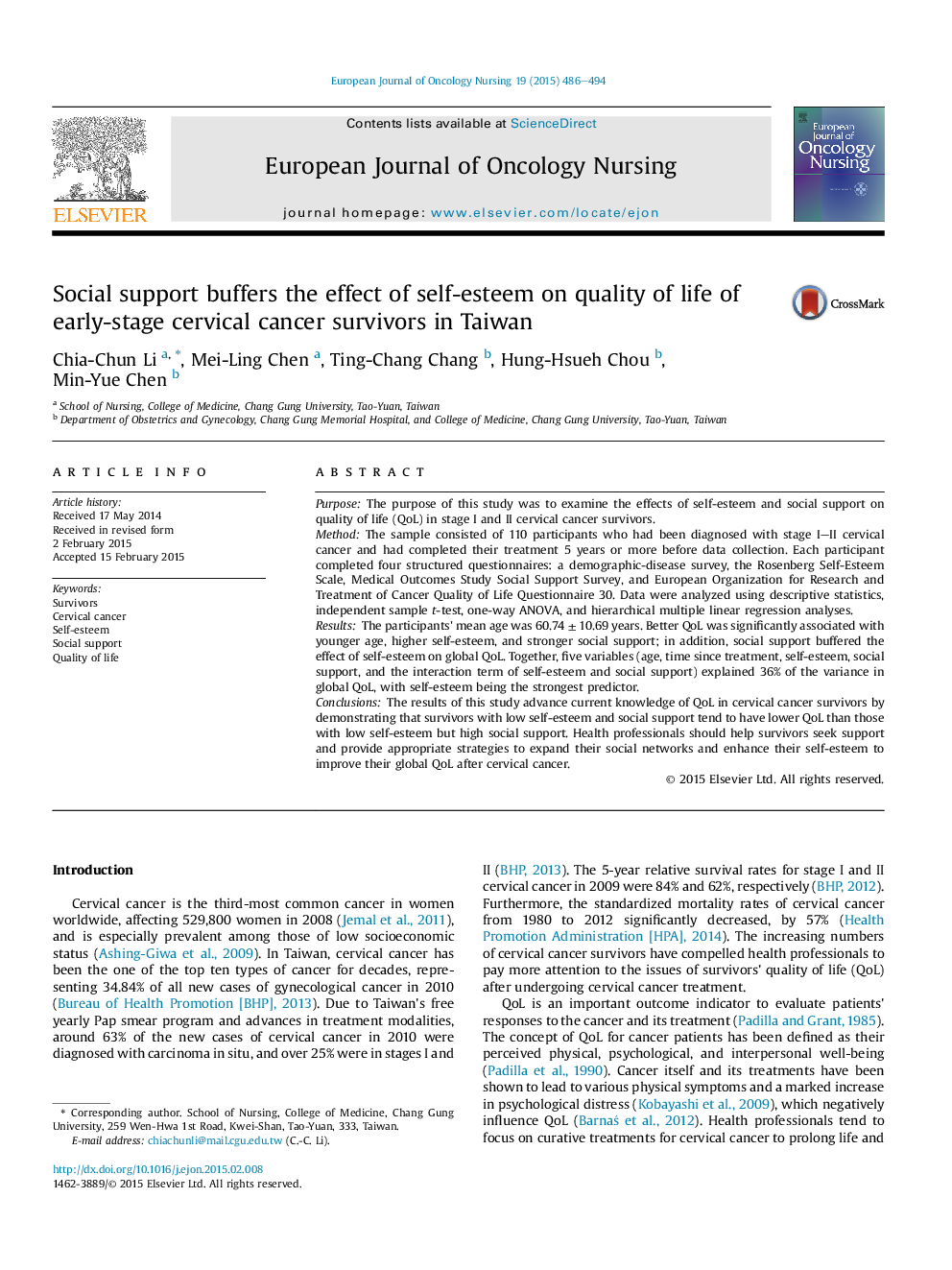| Article ID | Journal | Published Year | Pages | File Type |
|---|---|---|---|---|
| 2647530 | European Journal of Oncology Nursing | 2015 | 9 Pages |
PurposeThe purpose of this study was to examine the effects of self-esteem and social support on quality of life (QoL) in stage I and II cervical cancer survivors.MethodThe sample consisted of 110 participants who had been diagnosed with stage I–II cervical cancer and had completed their treatment 5 years or more before data collection. Each participant completed four structured questionnaires: a demographic-disease survey, the Rosenberg Self-Esteem Scale, Medical Outcomes Study Social Support Survey, and European Organization for Research and Treatment of Cancer Quality of Life Questionnaire 30. Data were analyzed using descriptive statistics, independent sample t-test, one-way ANOVA, and hierarchical multiple linear regression analyses.ResultsThe participants' mean age was 60.74 ± 10.69 years. Better QoL was significantly associated with younger age, higher self-esteem, and stronger social support; in addition, social support buffered the effect of self-esteem on global QoL. Together, five variables (age, time since treatment, self-esteem, social support, and the interaction term of self-esteem and social support) explained 36% of the variance in global QoL, with self-esteem being the strongest predictor.ConclusionsThe results of this study advance current knowledge of QoL in cervical cancer survivors by demonstrating that survivors with low self-esteem and social support tend to have lower QoL than those with low self-esteem but high social support. Health professionals should help survivors seek support and provide appropriate strategies to expand their social networks and enhance their self-esteem to improve their global QoL after cervical cancer.
